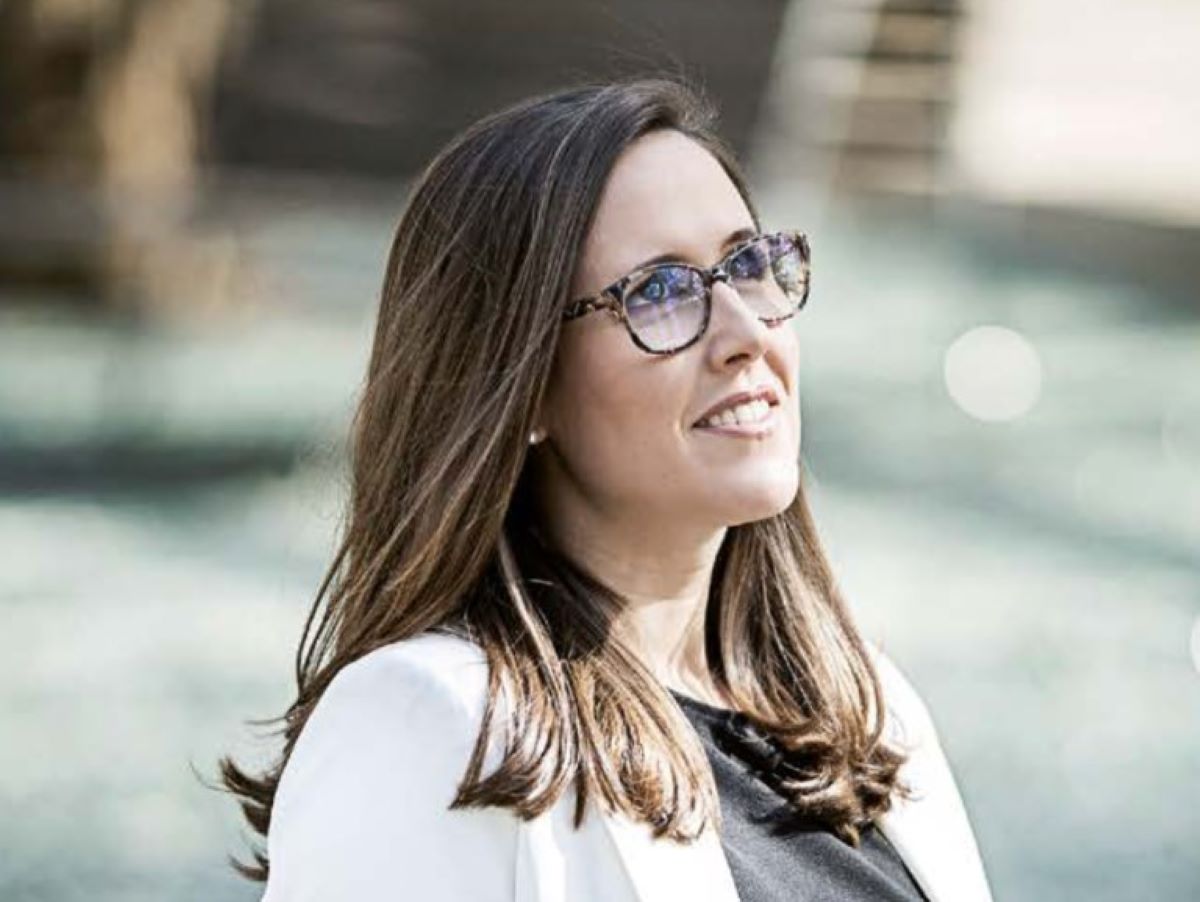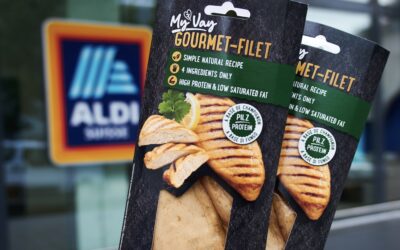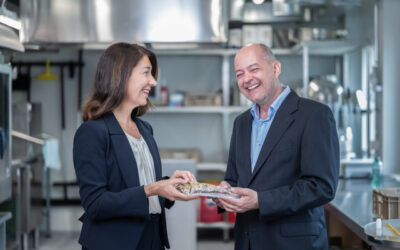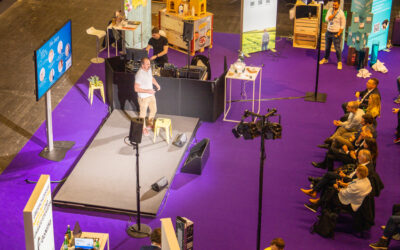5 questions on side stream valorisation for Rethink Resource CEO Linda Grieder Kern

Side stream valorisation focuses on repurposing by-products from food processing waste streams into high-value products. Rethink Resource plays a pivotal role in this space by offering guidance on projects around new value-creating opportunities for industrial side streams.
We spoke with Linda Grieder Kern, CEO of Rethink Resource – and a speaker at our forthcoming State of Play event on side stream valorisation – about Switzerland’s food innovation landscape, industry challenges, business models, and the future of circularity.
How did you become interested in the topic of side stream valorisation?
My journey into side stream valorisation started with a deep interest in industrial symbiosis and the circular economy – the idea that waste from one process can become a valuable resource for another.
What particularly intrigued me was the challenge of finding economically viable business models that integrate sustainability. I wanted to explore how companies could benefit from doing the right thing – not just by reducing waste but by turning by-products into valuable resources. This led me to side stream valorisation, where I saw a huge untapped potential to create new revenue streams while making food production more resource-efficient.
As I delved deeper, I realised that many food industry by-products still have significant nutritional, functional, or material value. The challenge wasn’t just about reducing waste but about unlocking innovative, high-value applications. That’s what ultimately drew me to this field: the opportunity to combine sustainability with smart economics, proving that circular business models can be both impactful and profitable.
Can you tell us a bit about what you do at Rethink Resource?
At Rethink Resource, we help companies across various industries identify, develop, and commercialise new value-creating opportunities from their industrial side streams. While the food industry is one of our strongest branches – given the high-value side streams it generates – we follow a cross-industry approach to unlock circular business opportunities.
Our role goes beyond just consultancy. We act as innovation partners, guiding companies from idea generation to market-ready solutions. This involves scouting for potential applications, connecting companies with the right technology partners, and designing business models that make side stream valorisation both profitable and scalable.
We also bridge the gap between research and industry, ensuring that new solutions are not just scientifically sound but also commercially viable. Ultimately, our goal is to help businesses transition from a linear approach – where by-products are discarded or downcycled – to a circular model that unlocks new revenue streams and contributes to a more sustainable and resource-efficient economy.
What do you see as Switzerland’s strengths and opportunities when it comes to sidestream valorisation?
Switzerland has a strong foundation for side stream valorisation due to its unique mix of industrial strength, innovation power, market conditions, and commitment to sustainability.
Home to leading food, life sciences, and manufacturing companies like Nestlé, Bühler, and Givaudan, Switzerland offers high-value side streams and the expertise to process them. Its economy provides fast access to global markets, while its compact size ensures short and efficient innovation-to-market cycles within the country.
With top universities and applied research institutes, Switzerland fosters cross-disciplinary innovation – essential for turning side streams into valuable products. We also have strong startup support and funding programmes, creating an ecosystem where startups and corporates can collaborate effectively.
Another key advantage is Switzerland’s high sustainability standards. Consumers and regulators expect businesses to operate sustainably, encouraging companies to adopt circular economy principles.
There is however still a lot of potential to unlock, often via cross-industry collaboration. Strengthening these connections and improving consumer awareness of upcycled products can help Switzerland lead the way in mainstream circular business models.
Why is collaboration important when it comes to creating viable circular solutions?
Circular solutions can’t succeed in isolation – they require collaboration across the entire value chain. Startups drive innovation but need manufacturers’ scale and infrastructure to grow. Retailers also play a key role in consumer education since dedicated shelf space and clear labelling could boost demand for upcycled products.
One of the biggest challenges in side stream valorisation is that available side streams and required resources rarely align perfectly. Also, the right processing capabilities often come from sectors unfamiliar with the side stream’s origin.
Ultimately, successful circular models thrive on partnerships. By fostering cross-industry collaboration and new business models, we can overcome technical and market barriers, unlocking the full potential of side stream valorisation.
Are there specific topics you’re looking forward to tackling at the forthcoming SFNV State of Play event?
I’m excited about building new bridges – connecting industries, technologies, and stakeholders to unlock new opportunities in side stream valorisation. I look forward to exploring how we can accelerate cross-industry value-networks, integrate emerging processing technologies, and overcome market barriers to bring circular solutions from concept to commercialisation. Real impact happens when ideas don’t just stay in research labs but reach consumers and industries at scale – and that’s what I hope to drive forward at this event.
Meet Linda at our State of Play event on 18 March.
Latest News
planetary scales B2B ingredient sales as ALDI Suisse selects Libre® mycoprotein for product launch
Planetary SA (“planetary” or the...
Yumame Foods and Le Patron partner for a delicious, plant-based future of food
Valley partner Yumame Foods and the...
What the food industry can learn from GDI’s Major Shifts model
The future is coming faster than many...
Meet the finalists of the Igeho Rising Star Award for 2025
Many startups applied. 15 made it to...




